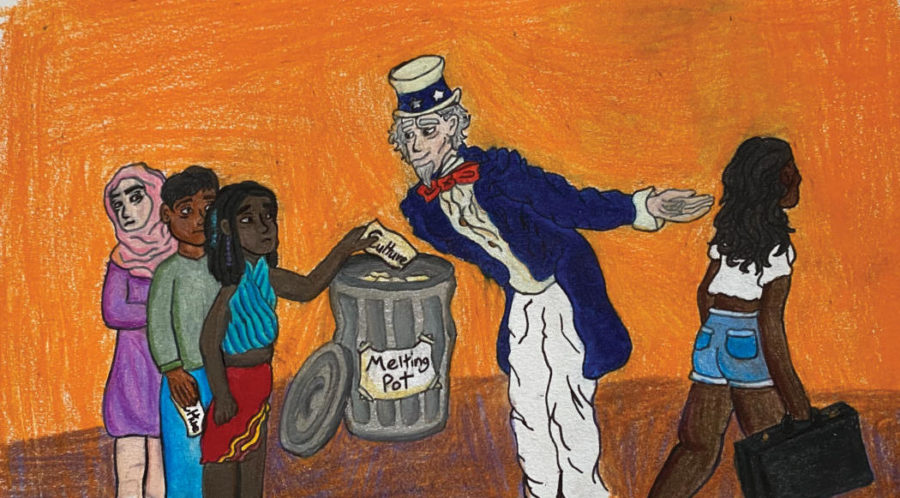Assimilation Leads to Destruction of Identity
The United States is often recognized as a “melting pot.”
With no official language and a population that’s almost 26% immigrants and second-generation immigrants, it’s clear the U.S. is ethnically diverse.
But is a “melting pot” the most ideal way to describe the culture of our multicultural country?
The exact definition of a melting pot is “a place where different peoples are mixed together.” In a melting pot, the “mixture” becomes homogenized, where one group can’t be distinguished from another. Everyone becomes the same, otherwise known as assimilation.
Multiple sources are reporting higher levels of assimilation. Although assimilation is seemingly unquantifiable, AmericanProgress.org and other studies have found ways to measure assimilation using variables such as English language proficiency and citizenship.
Pew Research Center shows that as of 2018, about 53.2% of immigrants speak English well, and that number
is steadily increasing. According to the Center for American Progress, the children of immigrants are learning English more rapidly than ever.
USCIS states the number of naturalizations of immigrants rose 11% in the United States from 2018-2019. Additionally, most foreign-born people in the U.S. are naturalized citizens. The citizenship test represents assimilation in that it requires an immigrant to pledge allegiance to the U.S. and relinquish allegiance to any country of which they were previously citizens.
It’s clear that modern assimilation occurs, and the process is becoming more rapid. But besides the word’s association with the United States’ mistreatment of Native Americans, why is assimilation bad?
For starters, assimilation is seen as a necessity. The more assimilated one is, the more likely they are to attain higher education, generate a high income, and/or own a house. The message
this sends is that the more one has lost their culture and become a standard
American, the more likely they are to succeed. It equates their original ethnicity with a lack of success.
Assimilation has a negative impact on an immigrant’s mental health. The National Academies Press describes assimilation as “a traumatic process rather than a simple solution to the traumas of immigration.” One study they conducted demonstrated that Mexican immigrants were more likely to develop a psychiatric disorder if they had assimilated more into American society.
Perhaps the most harmful of all, however, is the rhetoric and ideas sur- rounding assimilation. There’s a belief system that an immigrant needs to as- simulate into American culture in order to succeed, or even just to survive.
As Korean-American journalist Euny Long said, “Assimilation, not success, is the American end game.”
If the only real benefit to assimilation is comfortability in white American culture, how beneficial can this melting pot truly be?

Stephanie Kontopanos is a senior and the assistant editor of The Tiger Print. This is her third year on staff and her second year being the Newspaper Grandma...




